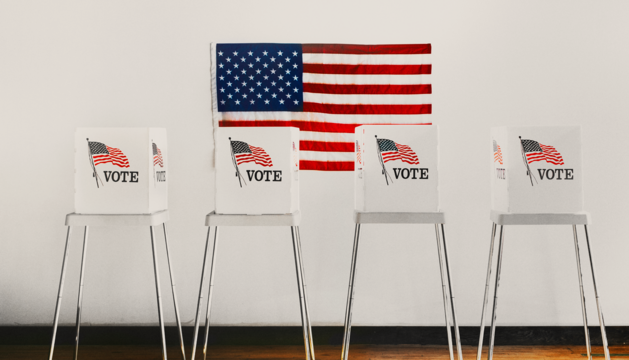The Effects of Requiring Documentary Proof of Citizenship
Documentary proof of citizenship laws have been shown to keep thousands from the polls.
Part of
The Presidential Advisory Commission on Election Integrity has its first meeting this week. The White House has said that legislation may flow from its work. Very possibly, the panel could push to require American citizens to produce a passport, birth certificate, or naturalization papers in order to register to vote. (This is known as “documentary proof of citizenship.”)
In fact, the panel’s vice chair and guiding force, Kansas Secretary of State Kris Kobach, is one of the nation’s leading advocates for such a rule. A recently released email revealed that he hopes to amend federal law to let states require people to show citizenship documents to register to vote. Kobach sent the email to President Trump’s transition team the day after the election, promising draft legislation to amend the National Voter Registration Act.
As Kansas Secretary of State, Kobach was the architect of a push to require documentary proof of citizenship to register to vote there. The state’s experience, as the analyses collected in this analysis reveal, has revealed that the requirement blocks large numbers of eligible citizens from registering to vote. Even though the Kansas rule, first implemented in 2013, has been weakened by the courts, tens of thousands of attempted registrants have been blocked at least temporarily. Many of them were prevented from voting.
The bid to require citizenship documents to register is driven by claims that noncitizens are voting in large numbers. President Trump, for example, has insisted that between three and five million illegal votes were cast in 2016. As has been widely reported, there is no evidence to back up those claims. Investigations have revealed only isolated cases of illegal voting. Furthermore, there are protections in place to keep noncitizens off the voter rolls, including a requirement that registrants attest to their citizenship under penalty of perjury, database checks, and the threat of criminal prosecution for voter fraud.
On the other hand, multiple sources of evidence show that a law requiring registrants to show citizenship documents would block significant numbers of citizens from registering. In addition to the experience in Kansas, similar effects have been observed in the other state with a similar law, Arizona. Evidence as to how many Americans have the required documents, and the obstacles to obtaining them, points to the same conclusion. In sum:
- In Kansas, tens of thousands of attempted registrations have already been blocked — between eight and fourteen percent of new registrants — in the first years of the requirement. Almost all of these registrants were eligible citizens.
- Tens of thousands were prevented from registering in Arizona, as well, including an estimated 17,000 citizens in Maricopa County alone.
- Surveys show that millions of American citizens — between five and seven percent — don’t have the most common types of document used to prove citizenship: a passport or birth certificate.
- A look at the concrete reality of obtaining citizenship documents shows how hard it can be for some. Low-income citizens may be completely prevented from complying — and therefore voting — by the costs and steps involved.
The following analysis collects all of this evidence, documenting the serious threat to Americans’ ability to vote that documentary proof of citizenship laws pose.
*Research assistance provided by Tomas Lopez and Christopher Famighetti.

